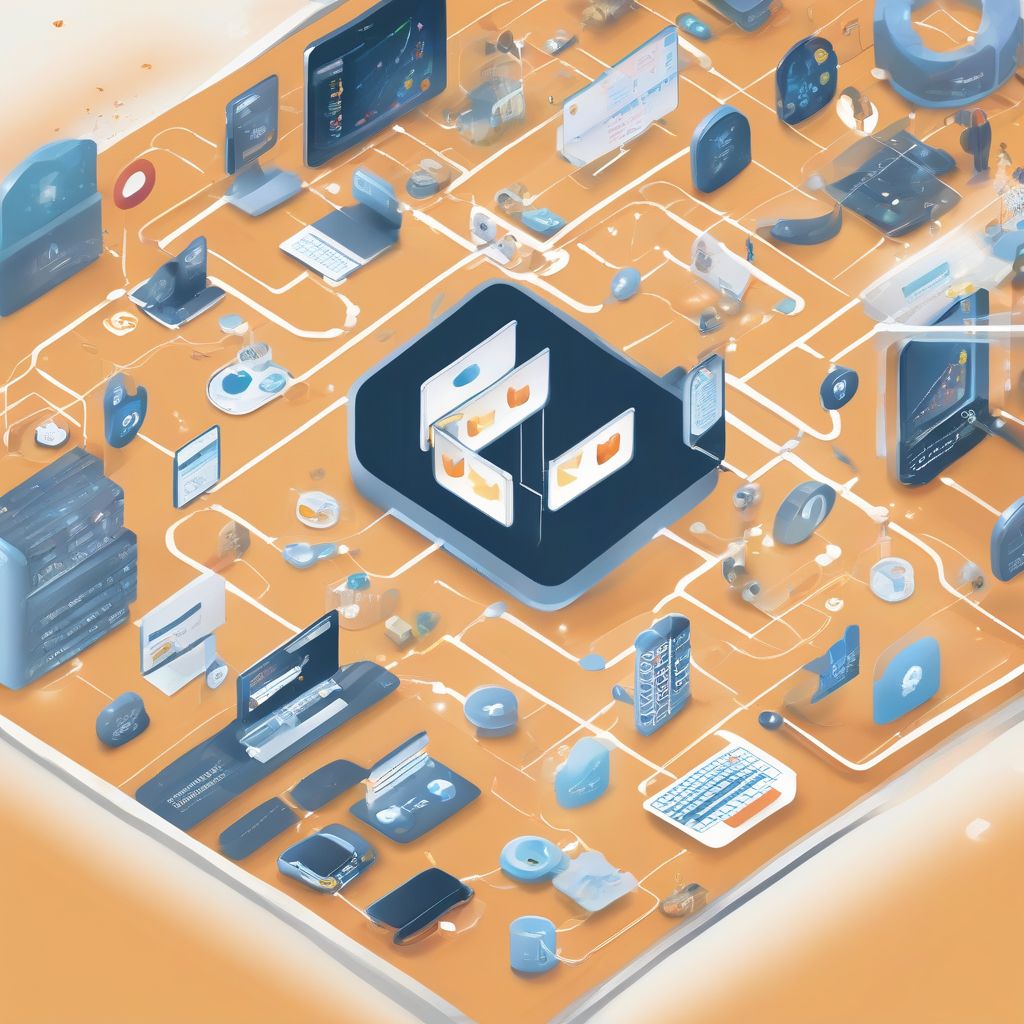In today’s fast-paced business world, staying ahead of the curve is crucial for success. Two systems that are often mentioned in conversations about business growth and efficiency are Crm And Erp. While they might seem similar at first glance, understanding the nuances of CRM and ERP and how they complement each other can be a game-changer for your business.
Delving into the Acronyms: Crm And Erp Explained
CRM, or Customer Relationship Management, is all about managing your interactions with customers and prospects. Think of it as a centralized hub for all your customer data – from contact information and communication history to purchase records and support tickets.
ERP, or Enterprise Resource Planning, on the other hand, takes a broader view, encompassing all the core processes needed to run a company. This includes financials, inventory, human resources, supply chain management, and more.
Why are Crm And Erp Important?
Both CRM and ERP offer significant advantages for businesses aiming to streamline operations and boost profitability.
CRM Benefits:
- Enhanced Customer Relationships: By centralizing customer data and interactions, businesses can gain a 360-degree view of their customers, leading to personalized experiences and stronger relationships.
- Improved Sales and Marketing Effectiveness: CRM systems provide valuable insights into customer behavior and preferences, enabling more targeted marketing campaigns and ultimately, higher conversion rates.
- Streamlined Sales Processes: From lead generation to closing deals, CRM automates sales tasks, improving efficiency and freeing up sales teams to focus on building relationships.
ERP Benefits:
- Increased Operational Efficiency: ERP systems automate and integrate core business processes, eliminating manual tasks and reducing the risk of errors.
- Data-Driven Decision Making: By providing real-time insights into all aspects of the business, ERP empowers leaders to make informed decisions based on accurate data.
- Cost Savings: Through process optimization and improved resource allocation, ERP can significantly reduce operational costs.
Crm And Erp: Common Questions and Considerations
While CRM and ERP offer distinct advantages, many businesses wonder how they differ and whether they need one, both, or neither.
How are Crm And Erp Different?
The key difference lies in their primary focus: CRM focuses on customer-facing activities, while ERP concentrates on internal operations. CRM manages customer interactions to improve satisfaction and drive sales, while ERP integrates and optimizes core business processes for maximum efficiency.
Do I Need Both Crm And Erp?
The answer depends on your business needs and goals. If you’re a small business primarily focused on sales and customer relationships, a CRM system might be sufficient. However, as your business grows and operations become more complex, integrating an ERP system can provide the necessary infrastructure to manage your expanding needs.
Can Crm And Erp Work Together?
Absolutely! In fact, integrating CRM and ERP systems can unlock powerful synergies for your business. By connecting customer data with operational insights, you can gain a holistic view of your business, leading to more informed decision-making, improved forecasting, and ultimately, a stronger bottom line.
 CRM and ERP Integration
CRM and ERP Integration
Conclusion: Embracing Technology for Business Growth
In the competitive landscape of modern business, leveraging technology to streamline operations and build stronger customer relationships is paramount. Understanding the distinct roles of CRM and ERP and how their integration can create a unified ecosystem for success is essential for businesses aiming to thrive in the digital age.